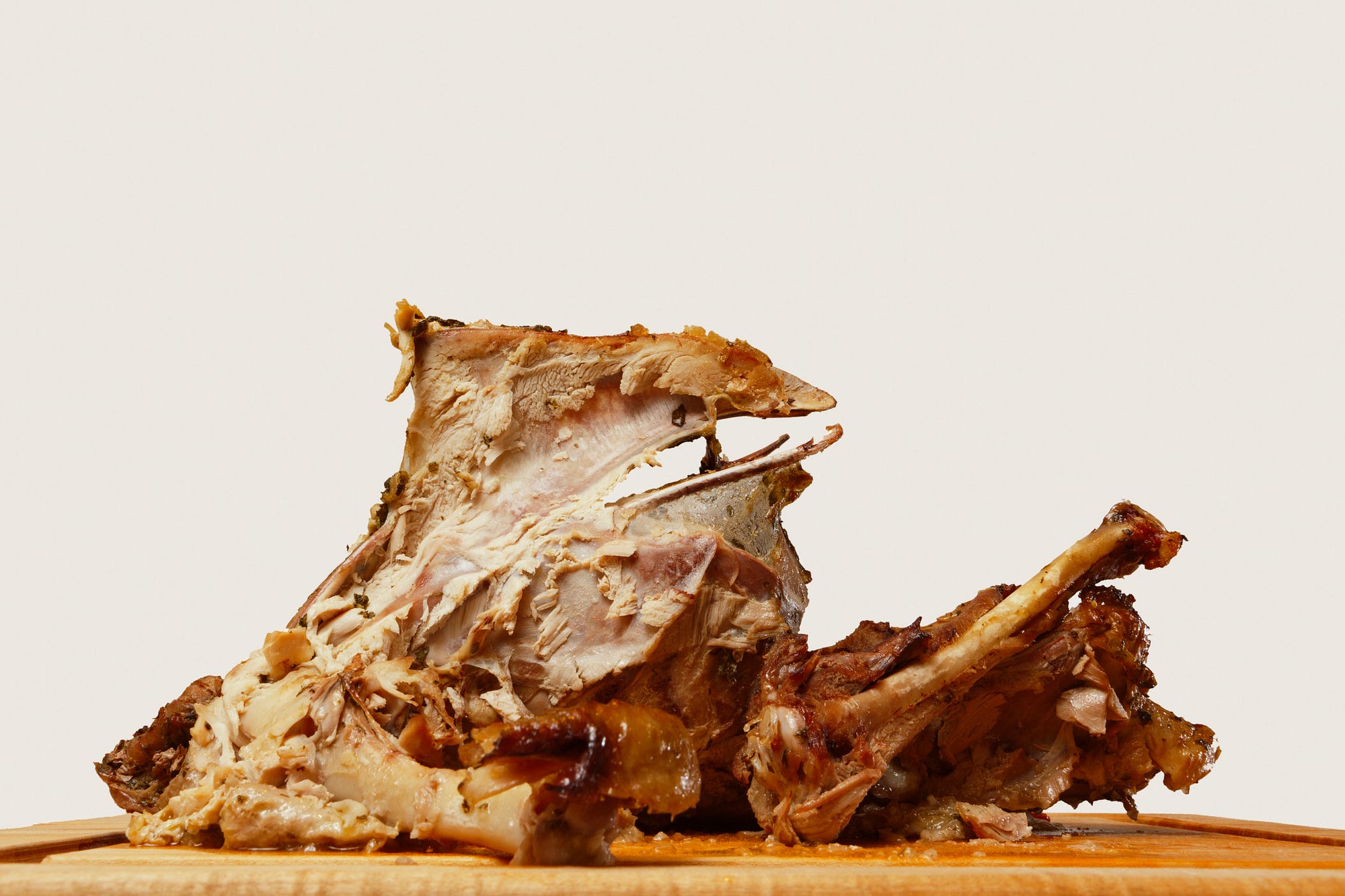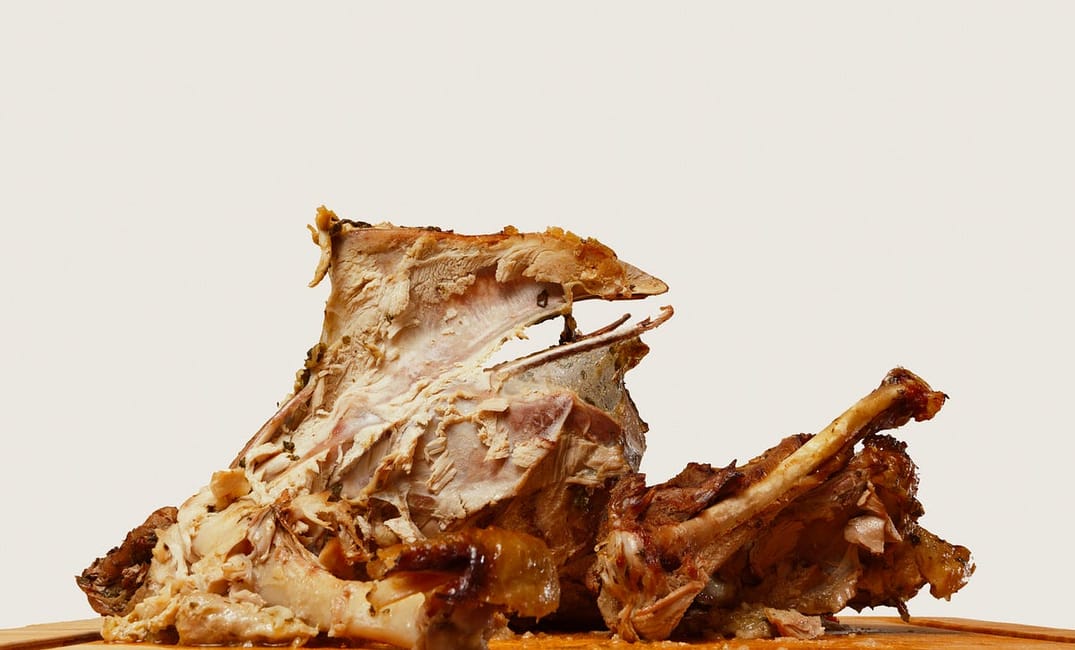FRIDAY FIVE

Happy post-Thanks-Living day! (Now firmly in the 2020s, it seems all manner of backward to celebrate a holiday steeped in violence and colonialism… so, maybe, let’s reframe the day’s subjectivity to one about just universal gratitude — sans those puritanical nods.) We hope that you, too, still find yourself hella satiated.
If you’re anything like us: You also have a lot of leftovers mounded inside plastic containers today.
With tackling food waste more important than ever, it’d be a travesty to let all that nourishment go to waste. And given the somber fact that rates of Bay Area hunger have at least doubled since Covid-19 entered our lexicons, throwing away otherwise perfectly fine food can seem like an ethical blunder.
But don’t fret; we’re here to help.
While you continue digesting macronutrients (and navigating around politically-charged conversations started by your conservative relatives), here are five ways to repurpose yesterday’s food scraps.
Freeze what you can for later
There’s nothing stopping you from putting Tupperware in the freezer, especially if you don’t plan on eating the contents of those small boxes over the next few days.
Granted: Things like salads, leafy greens, and certain fried foods won’t do all that great when frozen solid and reheated. But most foods — your various squash and fruit pies, sauteed vegetables, bread scraps and stuffings, and other morsels with similar textures and preparations — will do just fine tucked away in the freezer.
Before those foods do fine themselves in sub-freezing temperatures, allow them to cool to at least room temperature first. Doing so will prevent “freezer shock” and hold the structural (read: cellular) integrity of your food.
Compost all the things and stuff
Aside from single-use plastic wrappings and the odious amounts of aluminum foil rolled out yesterday, Thanks-Living can be a fairly waste-free affair.
Assuming you’ve still got the turkey carcass laying around, consider breaking it down to use for compost; it would also be a similar quality idea to do the same for leftover side dishes. Before you go about throwing everything in composting bins, be mindful of sugars and starches. If not composted long enough, they can lead to growth spurts in fungi — potentially offsetting the naturally occurring balance of them in your garden.
Pro Tip: Make your bone stocks and vegetable stock with these yet-to-be composted scraps before binning them.
Make pet-friendly treats
Rejoice, animal lovers: You can (safely, responsibly, consciously) feed many of yesterday’s food to your fur children. Unseasoned turkey (or turkey with the skinned removed) is a great to-go treat that’s free of the nasty chemicals commonly found in traditional, mass-marketed canine treats. Grains (rice, wheat, etc.), cooked and cut meats, corn, shrimp tails, and vegetables make for great chicken pickings.
Potbellied pigs will eat…well, just about anything.
Take those cans to food pantries.
For safety concerns, which have only gotten more stringent throughout the pandemic, the vast majority of Bay Area food pantries won’t take homemade food donations. That said: Most will still gladely take sealed foods, canned goods, and unused serving utensils.
We’d highly recommend you contact the said food bank you wish to give your donation to, beforehand.
Put everything packaged and sealed atop public trash cans
After everything is said and done — your stocks made, pet treat bags put together, those freezer morsels properly stored — and you still have things left, assemble some post-Turkey Day meals to place atop trash cans. In a city where there are some 9,000 estimated human beings without shelter in San Francisco, it’s a simple act of kindness that won’t go noticed. Or uneaten.
(Over the past few years, I’ve made it a task to corral the leftovers at various Friendsgivings to then dish out to unhoused residents around the Tendernob. Every time I’ve handed someone a Ziploc bag — the corners of each holding separated portions of Thanks-Living staples, like roasted turkeys and roasted brussel sprouts — they were received with the utmost gratitude. The simple act of seeing someone is an act of compassion all in itself; doing so with the intention of offering sustenance, as well, makes it that much more meaningful.)
Don’t forget to put a fork and knife in those said to-go containers or plastic baggies, so the meals can be enjoyed without making a mess.
Sign up for The Bold Italic newsletter to get the best of the Bay Area in your inbox every week.







